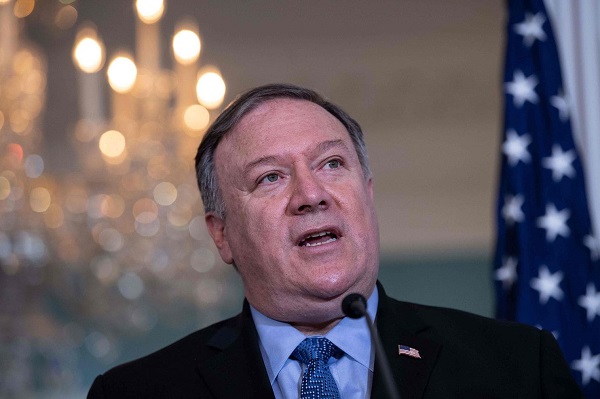US warns Iran over satellite launches
January 5, 2019 | Expert Insights

Secretary of State Mike Pompeo warned Iran to forfeit its plans for satellite launches that the United States says involve technology that could be used in intercontinental ballistic missiles.
ICBMs usually involve sophisticated launch, re-entry and detonation systems and are capable of reaching a minimum distance of 8,000 kms.
Background
The United States and Iran do not have any formal diplomatic relations or ties. The two nations share an acrimonious relationship. In 1953, the CIA played a key role in orchestrating a coup against Iran's democratically elected Prime Minister, Mohammad Mossadeq. Between 1979 and 1981, a group of Iranian students belonging to the Muslim Student Followers of the Imam's Line took over the U.S. Embassy in Tehran. The 44 hostages were released after 444 days. In 2002, US President, George W. Bush, described Iran as being part of the “axis of evil.”
On 2 April 2015, the P5+1 and Iran reached a provisional agreement that sought to lift most of the sanctions in exchange for limits on Iran's nuclear programs extending for at least ten years. When the International Atomic Energy Agency (IAEA) certified that Iran had restricted its sensitive nuclear activities, the UN sanctions were lifted on January 16, 2016.
In May 2018, US President Donald Trump unilaterally withdrew the US from the Joint Comprehensive Plan of Action (JCPOA) and re-imposed economic sanctions on Tehran. President Trump has been openly critical about the Iran deal and has sought to dissuade other members of the JCPOA to withdraw as well.
Analysis
United States Secretary of State Mike Pompeo has issued a stern warning to Iran over suspending its space program. Iran had recently announced its programme to send three different satellites into various orbits. Pompeo stopped short of saying how the United States might react if Iran goes ahead with its announced intention to test three Space Launch Vehicles (SLVs), but his warning suggested that the move could lead to new sanctions.
“The United States will not stand by and watch the Iranian regime’s destructive policies place international stability and security at risk,” Pompeo said in a statement. “We advise the regime to reconsider these provocative launches and cease all activities related to ballistic missiles in order to avoid deeper economic and diplomatic isolation.”
At the end of November, Iranian media reported that the deputy defence minister, Qassem Taqizadeh, said Iran would launch three satellites into space “on various orbits” within a few months. More recently, Iranian news outlets have said the satellites are for telecommunications and suggested a launch is imminent.
Pompeo said the Space Launch Vehicles “incorporate technology that is virtually identical to that used in ballistic missiles.” He said launching them would violate the U.N. Security Council resolution on the 2015 nuclear deal, which “calls upon” Iran to not test ballistic missiles, language that is softer than an outright ban.
Pompeo’s invocation of the Security Council resolution that enshrined the nuclear deal with Iran was somewhat awkward because President Trump withdrew from the agreement in May. Then, in early November, the United States reimposed sanctions that had been lifted under the deal. Iran has repeatedly said the United States is now in violation of the Security Council resolution it voted for, while the International Atomic Energy Agency monitoring compliance has consistently found Iran has been meeting its commitments.
European countries, Russia and China were all part of the negotiations and continue to support the agreement, but they have expressed concerns about Iran’s ballistic missile testing. The United States, Britain, France and Germany, all of which were parties to the agreement, condemned Iran’s decision in 2017 to launch a rocket that it said could deliver a satellite into space.
Though Iran has not yet perfected a functional ICBM, the satellite launch suggests “that is a path it’s going to go down.” Pompeo said Iran has launched numerous ballistic missiles since the Security Council resolution was adopted three years ago, most recently in early December.
Assessment
Our assessment is that the US is attempting to stop Tehran from achieving satellite launch capabilities, which could be adopted for carrying nuclear warheads. We believe that Iran has the capability to conduct multiple satellite launches without external support.








Comments